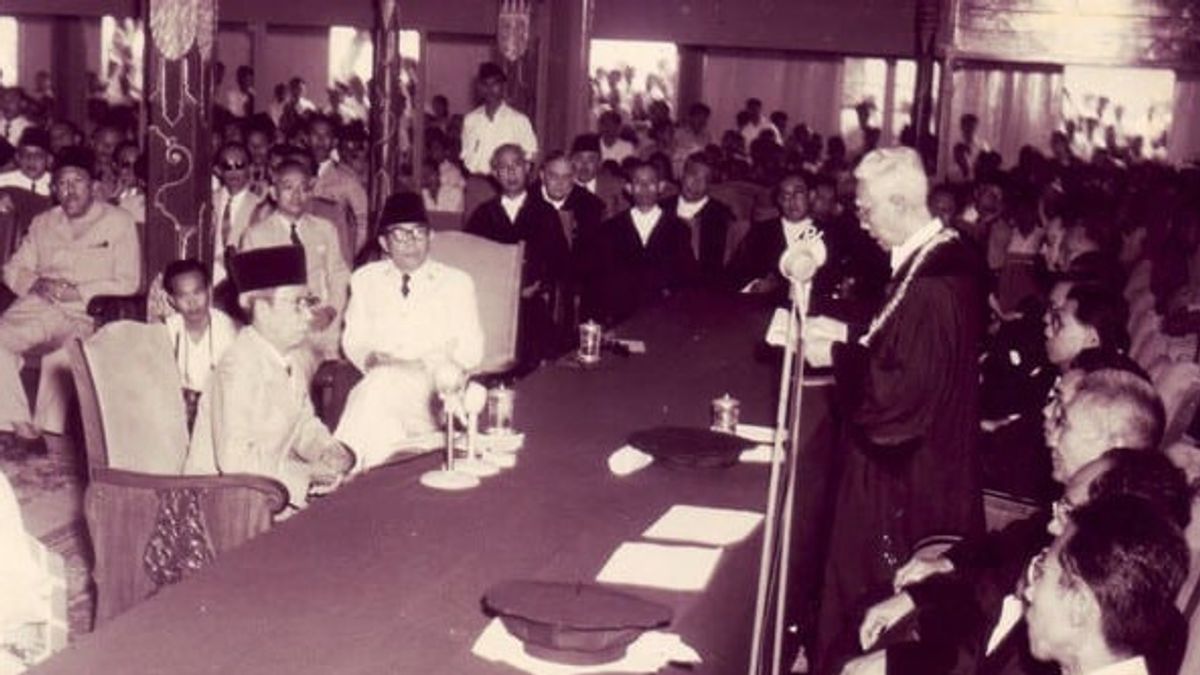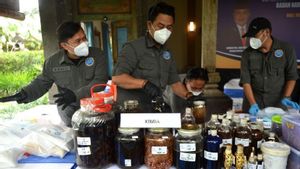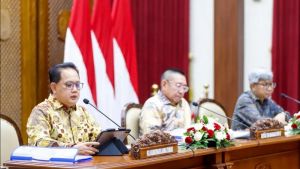JAKARTA History today, 66 years ago, December 19, 1956, Ki Hajar Dewantara received the title of Honorist Causa Doctor for cultural science from Universtas Gadjah Mada (UGM). The man who was originally known as Soewardi Soerjaningrat is considered to have a great service for Indonesia. Mainly in the field of education.
Previously, Soewardi was known as a radical freedom fighter. His actions often caught the attention of the Dutch. He even experienced prison and exile.
Soewardi Soerjaningrat often saw the shackles of colonialism The Dutch and Japan being a disaster for the bumiputras. The colonizers blackmailed the bumiputras like dairy cows. He also echoed resistance when he was active as a student at the Bumiputra Doctor Education School (STOVIA). Even though he did not pass.
Every day he often burned the spirit of the people with rhetoric and his burning writing. The spirit of resistance to the Dutch was also what brought Soewardi together with two friends: Tjipto Mangoenkoesoemo and Ernest Douwes Dekker. The three of them were later remembered as Tiga Serangkai. Especially when they founded Indische Partij (Indies Party) in 1912.
Soewardi's involvement in fact made the Dutch anger peak. He was in prison and then exiled together with his two colleagues to the Netherlands. Gradually, the Land of Windmills was in fact able to change the direction of Soewardi's resistance. From the political route to education.
The change was because Soewardi began to realize the importance of education as a tool of resistance. For him, education is an absolute requirement for independence. Therefore, when he returned from the Netherlands by establishing a Taman Siswa in 1922. An alternative educational organization.
The establishment of Taman Siswa is nothing but so that the bumiputras can access education. This is because education for the bumiputras was once a rare item in the Dutch East Indies (now: Indonesia). He then changed his name to Ki Hajar Dewantara.
Soewardi is a politician. He has far thought about educating not only a group of children, but all the younger generation, in the spirit of Indonesian nationality. Education is the basis for the struggle to raise the status of the people. Soewardi remembers the way the Dutch government regulates teaching in the Indian region.
"So real the differences given to compatriots, both opportunities that are neatly regulated, as well as the quality of their lessons. For the Bumiputra group, this looks the same: disappointing. The statistics of the number of Bumiputra children who attend school with illiteracy proves the poor teaching politics of the Dutch East Indies government," said Irna HN Hadi Soewito in Soewardi Soerjaningrat's book in Assistance (2019).
His work and contribution to Ki Hajar Dewantara in the world of education is remembered throughout the country. UGM also appreciated Ki Hajar Dewantara's long path to advancing education by giving him the honorary title of Honorary Causa in the field of cultural science.
The award was given by UGM in Siti Hinggil, the Yogyakarta Palace on December 19, 1956. Ki Hajar Dewantara was happy and didn't play. Moreover, on that day President Soekarno was one of the witnesses Ki Hajar Dewantara received an honorary title.
"Please allow me to open our remarks with our highest gratitude to the University Senate Council, which in its trial on November 7, 1956, has decided to give us the Honorary Causa Doctorate title."
"I show this thank you to Prof. Dr. Sardjito, who is the President of the University (rector), has succeeded in collecting various elements that are considered quite important, to be used as a basis or reason to account for the senate," Ki Hajar Dewantara said in his speech.
The English, Chinese, Japanese, Arabic, and French versions are automatically generated by the AI. So there may still be inaccuracies in translating, please always see Indonesian as our main language. (system supported by DigitalSiber.id)








